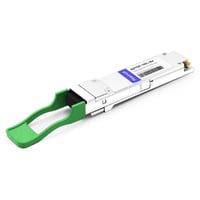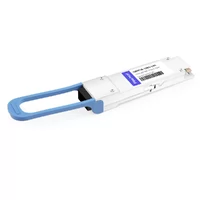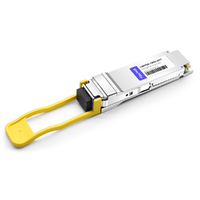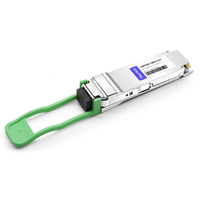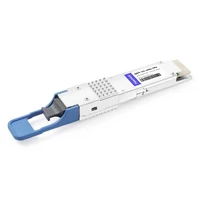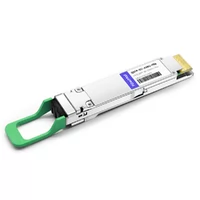The FiberMall silicon photonics transceiver project focuses on the independent research, development, and innovation of optical chip technology and centers around the optical communication industry. Its main business covers the design, packaging, and testing of optical chips. FiberMall is committed to promoting the industry’s overall solution of optical engines. Its main products cover 40G/100G/400G/800G-based AWG (Arrayed Waveguide Grating) WDM chips and components, silicon photonic chips above 400G, DSP modulation, and demodulation chips.
The core technologies of FiberMall’s silicon photonics transceivers are divided into AWG technology and silicon photonics chip technology. FiberMall attaches great importance to the mass production of products and the cost-effectiveness brought to customers. FiberMall can provide chip, component products, and device packaging, including AWG chip and component series, silicon photonic chip design and high-speed optical engine packaging services, and laser projection products.
On the core technology platform, FiberMall has built a mature platform for AWG chip, component design, and mass production, and a fully automated COB process platform that can realize mass production of 100G series optical modules. It has also built a silicon optical packaging process platform for optical interconnects above 400G. Based on the current 400G DR4 silicon photonics chip, FiberMall will continue to invest in research and development, and gradually provide the market with commercial coherent silicon photonics integrated chips with a rate of more than 400G.
Looking back at the historic moments of optical communication development, 100G optical modules were officially commercialized on a large scale in the North American data center market in 2017, and subsequently became the mainstream rate of data center optical architecture. The demand for 100G in China’s data center market also continues to grow. The 100G optical transceiver in the data center takes 100G CWDM4 as the main choice. In addition, thanks to the multi-channel advantages, low cost, and reliability of AWG chips and components, 100G transceiver suppliers generally choose to produce 100G CWDM4 with an AWG wavelength division multiplexing scheme.
AWG chip is originally designed by FiberMall. FiberMall established an AWG component process platform in 2016 and passed the full process verification of 40G AWG components. In 2017, it successfully passed the verification test of large-scale data center customers and achieved mass shipment of AWG components. In 2019, the customer verification of 100G AWG products was completed again. FiberMall’s AWG chips have the advantages of high yield, high bandwidth, customizability, low loss, low twist, and low cost.
With the steady growth of cloud vendors’ capital expenditures and the rapid increase in global data traffic, the bandwidth capacity of network infrastructure continues to expand. The data center iterates every 2-3 years, and the rate of optical transceiver is rapidly evolving from 100G to 200G/400G. Internet cloud computing companies represented by Amazon, Google, Microsoft, and Meta are deploying 400G optical modules in batches in data centers, focusing on 400G DR4 modules with a transmission distance of 500 meters. 400G DR4 is considered to be the best choice for silicon photonics integration technology.
Silicon photonics technology integrates various optical devices on a single chip. Compared with traditional discrete devices, it can improve efficiency and reduce the complexity of the assembly process of independent components. Taking advantage of the large-scale manufacturing capabilities of silicon wafer CMOS platforms, the technology can significantly reduce the cost of optical modules, and effectively meet the demand of cost-sensitive customers.
![]()
Eye diagram of silicon wafer CMOS
Test results of 400G silicon photonics wafer and chip
FiberMall chooses to invest heavily in the R&D of silicon optical modulator chips to cope with the future trend of optical transceiver technology. FiberMall believes that silicon photonics chips will usher in greater development space for 400G and higher-speed applications. FiberMall’s 400G transmitter silicon optical modulator has been successfully taped out in 2019, and the project design will be completed in 2020. In the same year, the 800G chip has also been successfully taped out.
In May 2021, FiberMall officially released 100G DR1 and 400G DR4 silicon photonics modulator chips and cooperated with well-known test equipment companies to demonstrate the Ethernet interoperability of 400G/800G silicon photonics solution modules based on FiberMall’s silicon photonics solution. This successfully verified the full-load traffic transmission capability of 400G/800G Ethernet, as well as the interworking and traffic testing of 400G/800G fan-out to multiple 100G DR1 optical modules.
Cloud data center users realize the limitations of indium phosphide (InP) and gallium arsenide (GaAs) optics in terms of speed, reliability, and integration with CMOS electronics, which in turn drives the gradual growth of the market share of the data center silicon photonics transceiver. According to LightCounting analysis, the global sales revenue of silicon photonics products will reach nearly 30 billion US dollars in 2021-2026, and the market share of silicon photonics products is expected to exceed 50% by 2026.
“But in the next few years, traditional optical modules will still be the mainstream choice in the data center market, which depends on the end user’s trade-off between the cost and reliability of silicon photonics chips and modules.” Yang Ming said that the current demand for silicon photonics products is highly concentrated in the North American market, which will be a long and costly process to develop and commercialize silicon photonics chips and modules. That is a heavy burden for general optical transceiver and optical chip companies, especially the tape-out cost and time cost of CMOS wafer platforms that can be as high as 5 million yuan at a time.

The global market for optical transceivers by technology
Development forecast of silicon photonics products in the next five years
FiberMall focuses on the development and design of silicon photonics chips. It has an original electrode design that can effectively reduce the driving voltage while ensuring the bandwidth. Combined with the system chip parameter design of the application scenario, the plan can effectively reduce over-design. FiberMall also proposes a high-reliability design scheme suitable for the COB process, which can effectively cut customer packaging costs.
FiberMall has invested more than 70 million yuan in research and development and more than 50 million yuan in fixed assets of equipment. As one of the few leading manufacturers with real supply capabilities in silicon photonic chips, FiberMall has achieved several tape-outs of R&D products through cooperation with a professional silicon photonic chip manufacturing platform. Coupled with its own supporting automated device packaging services, FiberMall can cooperate with optical transceiver manufacturers to accelerate silicon photonics development projects and help them cross the high investment threshold of silicon photonics products.
Looking forward to future development, FiberMall will first continue to expand its production capacity through financing and turn more R&D results into product production. Currently, the construction of a 12,000-square-meter factory building is underway, which is expected to be put into operation in February next year. AWG and silicon photonics technology share the common topic of how to continuously reduce excessive insertion loss, which will bring good synergy to the development of FiberMall.
Mature AWG technology can provide ideas for silicon photonics R&D innovation. Meanwhile, FiberMall’s AWG products have entered the supply chain of most cloud technology center manufacturers. AWG products can also facilitate the business expansion of silicon photonics chips and silicon photonics engines, and promote the seamless evolution from 100G to 400G products.
FiberMall believes that the demand for III-V, silicon photonics, lithium niobate, and even polymers in the optical communication market will increase in the future. The primary task of optical chip companies is to focus on improving the reliability, mass producibility, and scalability of chips, providing more cost-effective solutions to help customers improve product performance, consolidate product quality, and promote product upgrades. That is the core value of FiberMall, not only in technological innovation but also in the belief of service first.
Table of Contents
ToggleRelated Products:
-
 Cisco QSFP-100G-CWDM4-S Compatible 100G QSFP28 CWDM4 1310nm 2km LC SMF DDM Transceiver Module
$110.00
Cisco QSFP-100G-CWDM4-S Compatible 100G QSFP28 CWDM4 1310nm 2km LC SMF DDM Transceiver Module
$110.00
-
 Cisco QSFP-100G-LR4-S Compatible 100G QSFP28 LR4 1310nm (LAN WDM) 10km LC SMF DDM Transceiver Module
$285.00
Cisco QSFP-100G-LR4-S Compatible 100G QSFP28 LR4 1310nm (LAN WDM) 10km LC SMF DDM Transceiver Module
$285.00
-
 Arista Networks QSFP-100G-DR Compatible 100G QSFP28 Single Lambda DR 1310nm 500m LC SMF with FEC DDM Optical Transceiver
$180.00
Arista Networks QSFP-100G-DR Compatible 100G QSFP28 Single Lambda DR 1310nm 500m LC SMF with FEC DDM Optical Transceiver
$180.00
-
 Arista Networks QSFP-100G-FR Compatible 100G QSFP28 Single Lambda FR 1310nm 2km LC SMF with FEC DDM Optical Transceiver
$215.00
Arista Networks QSFP-100G-FR Compatible 100G QSFP28 Single Lambda FR 1310nm 2km LC SMF with FEC DDM Optical Transceiver
$215.00
-
 Cisco QDD-400G-DR4-S Compatible 400G QSFP-DD DR4 PAM4 1310nm 500m MTP/MPO SMF FEC Optical Transceiver Module
$400.00
Cisco QDD-400G-DR4-S Compatible 400G QSFP-DD DR4 PAM4 1310nm 500m MTP/MPO SMF FEC Optical Transceiver Module
$400.00
-
 Arista Networks QDD-400G-FR4 Compatible 400G QSFP-DD FR4 PAM4 CWDM4 2km LC SMF FEC Optical Transceiver Module
$500.00
Arista Networks QDD-400G-FR4 Compatible 400G QSFP-DD FR4 PAM4 CWDM4 2km LC SMF FEC Optical Transceiver Module
$500.00

